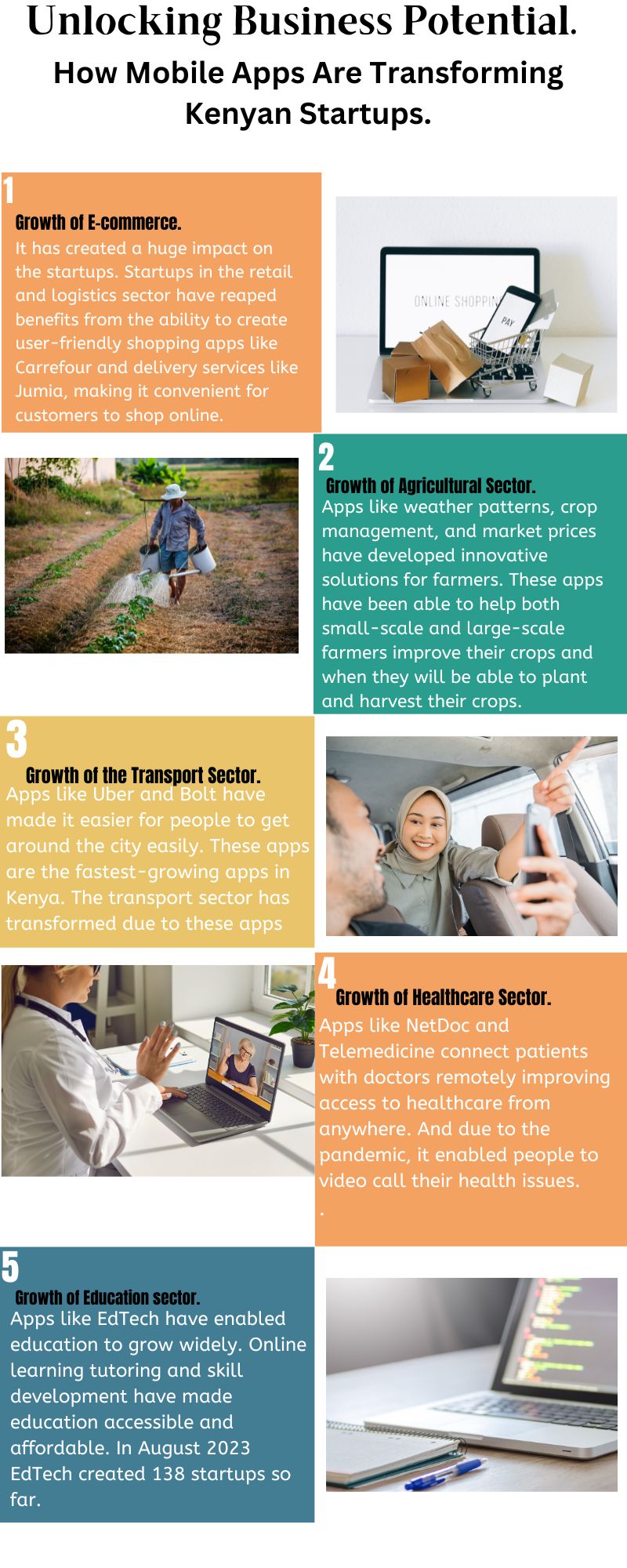Kenya is still experiencing a mobile revolution with many people using the internet through smartphones. The huge turn has created opportunities and challenges for the startups.
The growth of E-commerce has created a huge impact on the startups. Startups in the retail and logistics sector have reaped benefits from the ability to create user-friendly shopping apps like Carrefour and delivery services like Jumia, making it convenient for customers to shop online.
Mobile apps like M-pesa have made it possible for customers to make digital payments for customers who don’t use banks. This enabled new markets to open up and revenue streams.
Mobile apps have made it easier for Kenyan startups to reach a wide audience. With the growth of smartphones and the use of the Internet, potential customers have the opportunity to access products and services from anywhere.
In the agricultural sector, apps like weather patterns, crop management, and market prices have developed innovative solutions for farmers. These apps have been able to help both small-scale and large-scale farmers improve their crops and when they will be able to plant and harvest their crops.
Apps like Uber and Bolt have made it easier for people to get around the city easily. These apps are the fastest-growing apps in Kenya. The transport sector has transformed due to these apps. Apps like NetDoc and Telemedicine connect patients with doctors remotely improving access to healthcare from anywhere. And due to the pandemic, it enabled people to video call their health issues.
Startups have created apps for saving, loans, insurance, and investments giving people control of their finances. Many Kenyans have been able to get the opportunity to get loans from various banks and have medical and car insurance.
Apps like EdTech have enabled education to grow widely. Online learning tutoring and skill development have made education accessible and affordable. In August 2023 EdTech created 138 startups so far.
The creation of online marketplaces has enabled buyers and sellers to interact. These platforms have boosted trade and entrepreneurship providing digital space for small businesses to reach a larger customer base.
The collection of data and analysis in the agricultural and health sector has played a role in the creation of mobile apps. Startups can gather real-time data and informed decisions and create solutions to target their audiences.
These startups are currently facing various challenges such as competition and infrastructure limitations. As the mobile app continues to evolve more Kenyans gain access to smartphones and the apps will remain a tool for startups for innovation and growth of the country.



